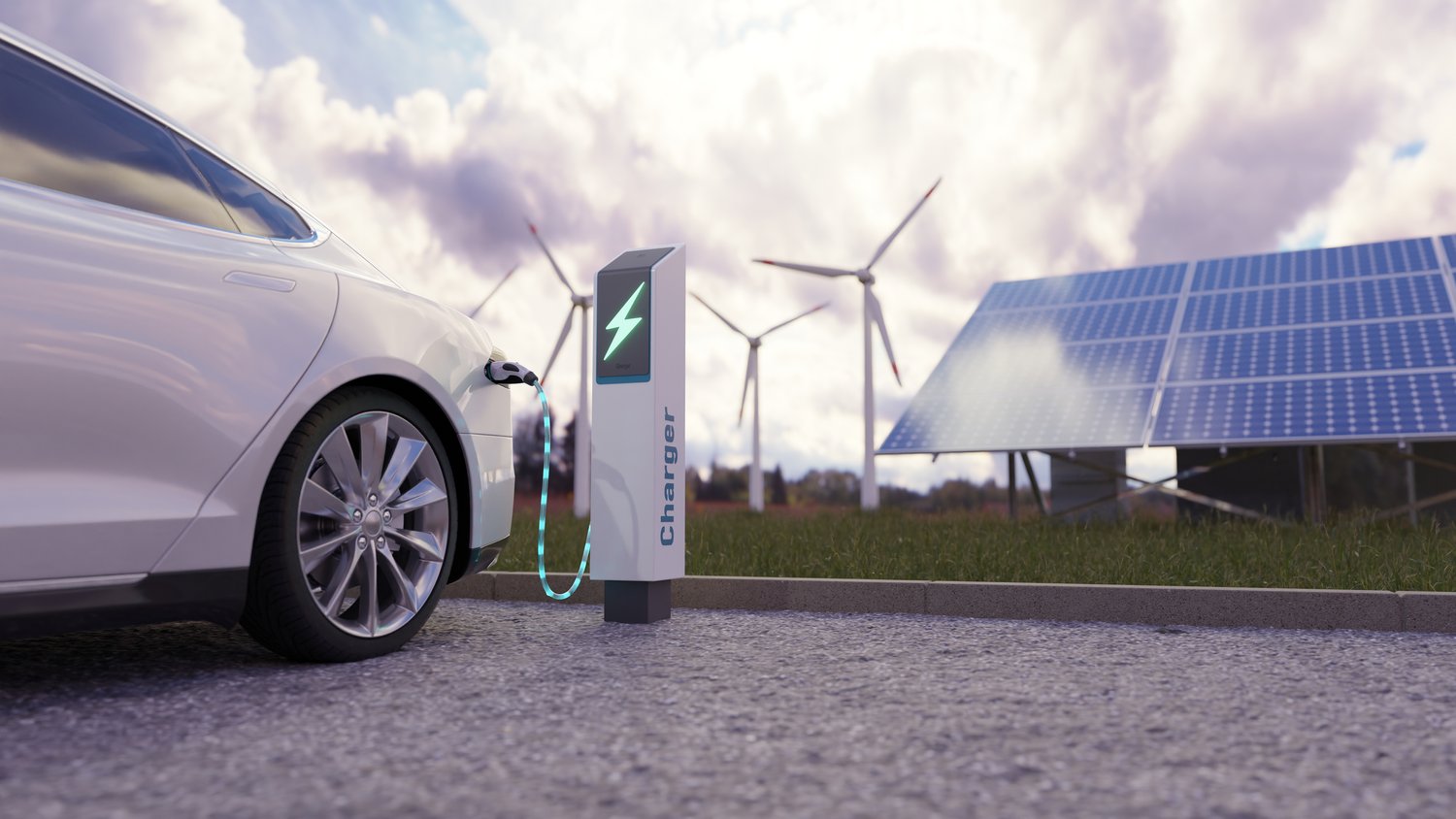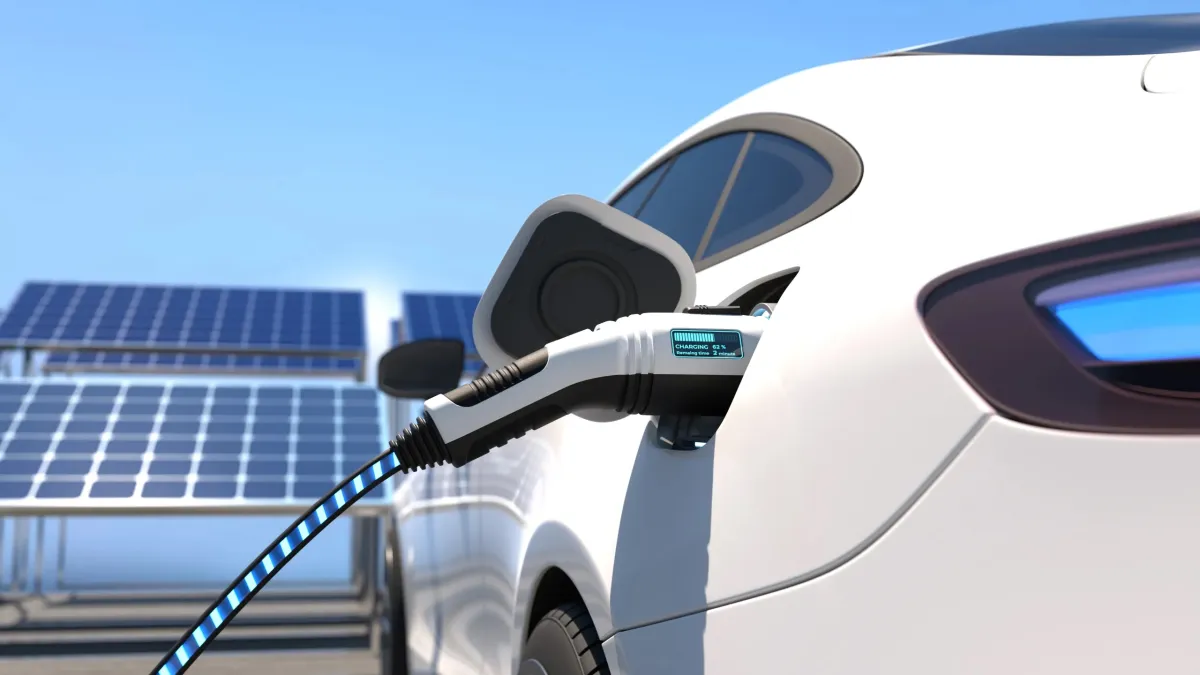The electric vehicle (EV) industry is experiencing a notable rise in popularity.
As more individuals adopt eco-friendly electric transportation, an important question emerges: how can we power these vehicles in a manner that’s sustainable for the planet?
This is where solar energy, a clean and renewable power source, comes into play, offering transformative benefits to the EV sector.
Solar energy harnesses the power of the sun to provide a variety of advantages for electric vehicles.
In this blog post, we’ll explore these benefits, focusing on how solar power can significantly reduce the environmental impact of EVs, lower charging costs, and contribute to a more resilient energy system.
Environmental Benefits of Solar Energy
One of the most significant advantages of solar power for electric vehicles is its positive environmental impact. Unlike traditional gasoline-powered vehicles, electric vehicles that run on solar energy have a drastically reduced carbon footprint.
Since the generation of solar energy produces no greenhouse gas emissions, using solar power to charge your EV significantly lowers your contribution to climate change. It’s a win-win for both your electric vehicle and the planet!
Air Quality Impacts by Reducing Reliance on Fossil Fuels
The environmental advantages extend beyond just reducing carbon emissions. Traditional gasoline and diesel-powered vehicles are significant contributors to air pollution.
By charging your EV with solar power, you’re helping to reduce harmful pollutants that would otherwise be released into the atmosphere, leading to cleaner air for all. This is especially beneficial in urban areas where air quality can be a major concern.
Addressing Climate Change
Solar energy plays a vital role in the fight against climate change. By reducing our dependence on fossil fuels and transitioning to renewable energy sources such as solar, we can dramatically decrease greenhouse gas emissions and mitigate climate change’s adverse effects.
Solar-powered EVs are a significant step toward a cleaner and more sustainable future.
Powering Up Savings: Solar Energy and Charging Costs
Cost-Saving Potential
Now that we’ve looked at the environmental advantages of solar power for EVs, let’s focus on the financial benefits. One of the most appealing aspects of solar energy is its potential to significantly reduce the cost of charging your electric vehicle.
“Free” Energy Generation
The beauty of solar power lies in its ability to generate “free” energy. Once solar panels are installed on your roof, the sun’s energy becomes your own personal fuel source.
This solar energy can be used to power your home and, most importantly for EV owners, to charge your electric vehicle. By relying less on the traditional electricity grid for charging, you can see a substantial reduction in your overall charging costs.
Reducing Reliance on the Electricity Grid
This cost-saving benefit is especially relevant in areas with high electricity rates. Additionally, as solar energy becomes more popular, government incentives and rebates are increasingly available, making the initial investment in solar panels even more appealing.
For businesses and commercial fleets considering a shift to EVs, solar power presents a compelling opportunity to reduce long-term energy costs related to charging a fleet of electric vehicles.
Ultimately, solar energy offers a sustainable and cost-effective way to power your electric vehicle, reducing reliance on the grid and potentially lowering charging expenses in the long run.
Expanding the Grid: More Charging Stations with Solar Power
The advantages of solar power for EVs go beyond individual homes and charging costs. Solar energy has the potential to revolutionize the broader EV charging infrastructure, making it more accessible and convenient for everyone.

Increased Availability of Charging Stations
One of the major obstacles to widespread EV adoption is “range anxiety” — the fear of running out of battery before reaching a charging station. Solar energy provides a solution by enabling the installation of more charging stations in various locations.
Solar panels can be installed on rooftops of homes, businesses, and even public spaces like parking lots and shopping centers.
This creates a network of charging stations powered by the sun, reducing range anxiety and making it easier for EV owners to find charging points no matter where they are.
Reduced Reliance on the Grid and Increased Sustainability
The integration of solar power with charging stations creates a more sustainable approach to EV charging infrastructure.
By reducing dependence on the traditional electricity grid, solar-powered charging stations alleviate strain on the power system, contributing to a more sustainable energy future.
This is particularly beneficial in regions where the grid might struggle to meet the increasing demand for electricity due to a growing number of electric vehicles.
Solar-powered stations make charging EVs a more eco-friendly process, further supporting the overall sustainability of electric vehicles.
The Impact of Solar Energy on the EV Industry
The synergy between solar energy and electric vehicles goes beyond simple charging. These two technologies can work in tandem to create a more sustainable and resilient energy system.
EVs as Distributed Energy Storage
Imagine your electric vehicle as a large battery, not just for powering your car but for storing surplus solar energy generated by your home’s solar panels. This concept, called distributed energy storage, opens up exciting possibilities.
During peak sunlight hours, your solar panels may generate more electricity than your home needs. With an appropriately equipped EV, this excess energy can be stored in your car’s battery.
Later, when solar energy production decreases, you can use this stored energy to power your home, reducing your reliance on the grid.
This two-way flow of energy maximizes the efficiency and sustainability of the system, making the most of the solar power you generate.
Backup Power During Outages
The benefits of solar and EVs go beyond just sunny days. Consider a power outage during a storm or other emergency. With the right setup, your solar-powered EV can serve as a backup power source for your home.
The stored energy in your car’s battery can provide essential electricity for lights, appliances, or even medical equipment during an outage.
This ability to function as a backup power source enhances the resilience of your home’s energy system, offering peace of mind and extra security during unexpected power cuts.
Increased Energy Independence
By harnessing solar energy and using your EV for energy storage, you can achieve greater energy independence.
Reducing your reliance on the traditional grid for both transportation and home electricity leads to a more self-sufficient and sustainable lifestyle for you and your community.
For communities looking to decrease their dependence on fossil fuels and build a more resilient energy future, combining solar energy with electric vehicles provides a powerful and promising solution.

